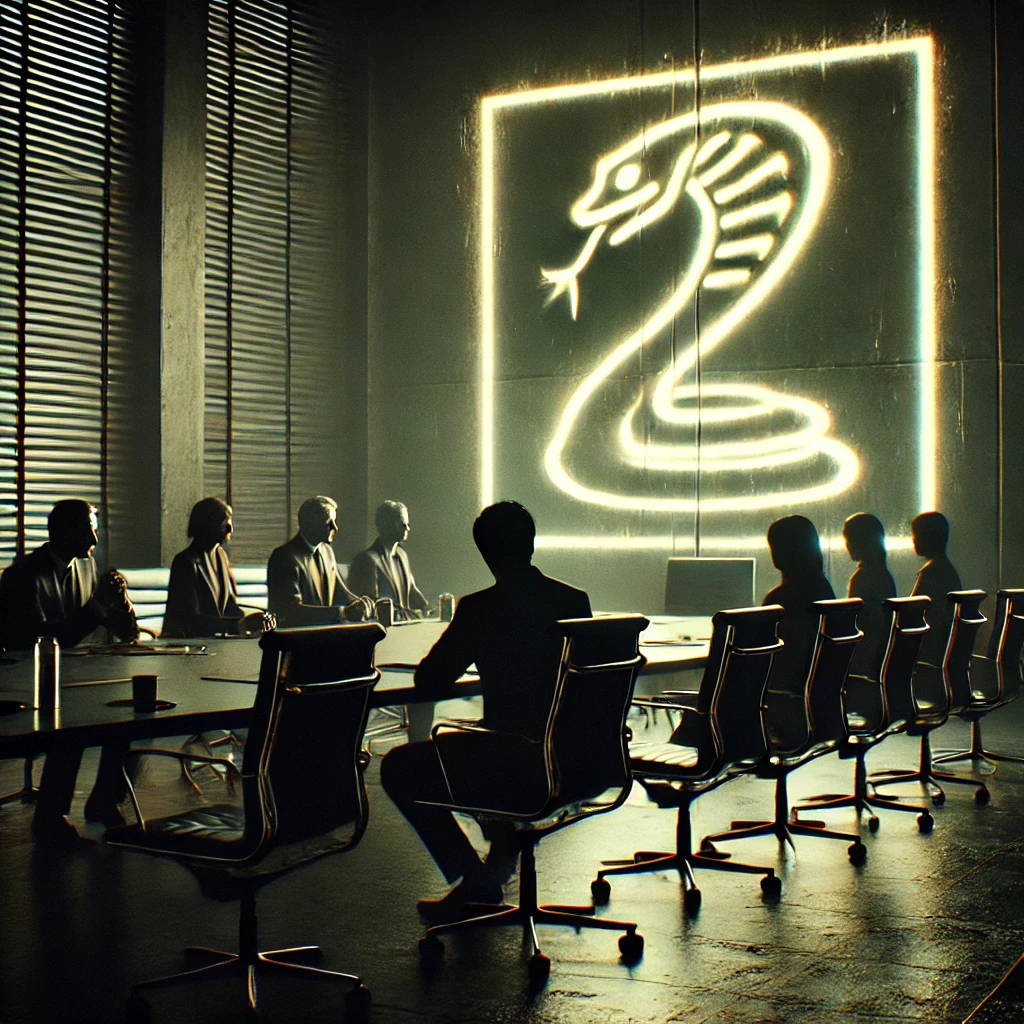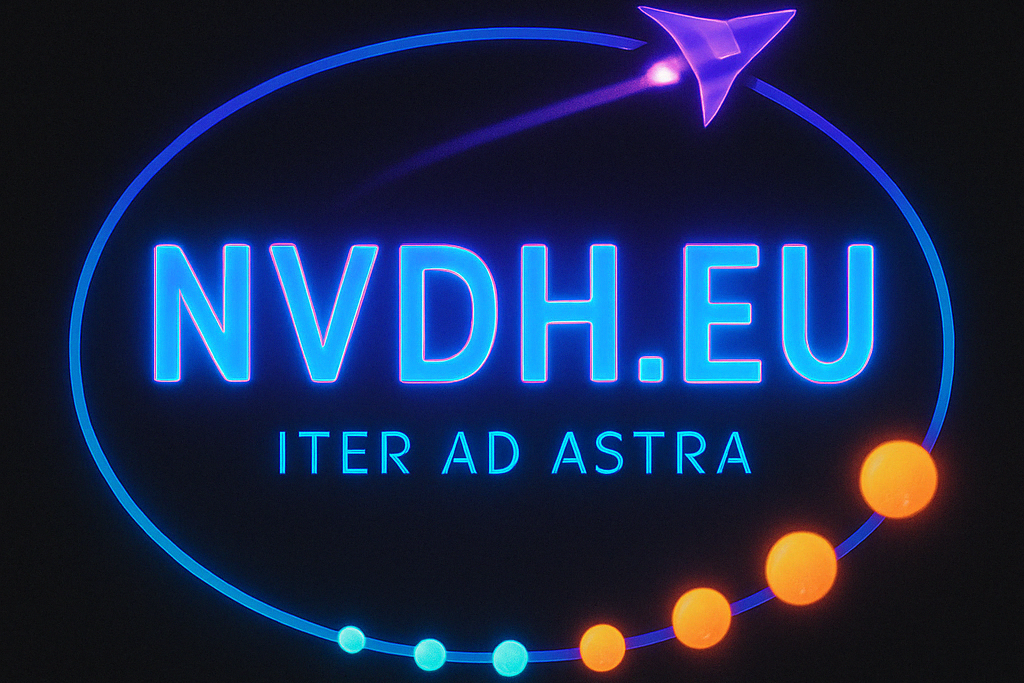
I. Curiosity Killed the Cat
There’s a buzz you hear when you’re too close to a live wire. It’s faint, but it’ll stop you dead if you know what to listen for. I heard that buzz the first time I walked into LEVI’s headquarters.
LEVI—the financial titan whose fingers were in everything from AI to bio-tech—had become my obsession. Their recent shift into biology raised every red flag my instincts could wave. When money shifts direction, it always means something.
The lobby was a cathedral of sterile beauty. Chrome fixtures reflected soft light from above, and a serpentine L, their logo, glowed on the far wall. That little emblem carried a running joke in the industry—Leviathan. The name fit, too. LEVI didn’t stop growing.
I strode to the front desk, clutching my press badge. “Dan Wells. Here to see Nick Graham.”
The receptionist’s face was carved from granite. She didn’t even glance up. “Mr. Graham is expecting you. 42nd floor.”
The elevator hummed like the belly of a beast, the ride silent except for my thoughts chewing at me. Nick Graham—former wunderkind AI researcher—had disappeared from public view months ago. Whispers followed his name: breakthroughs, disappearances, cover-ups. I didn’t believe in smoke without fire, and my gut told me Nick was sitting at the center of a blaze.
The elevator doors slid open.
II. The Visionary and the Machine
Nick’s office stretched like an observatory—glass walls on two sides, a vast skyline of the city rolling out below. He stood silhouetted against the window, his frame small compared to the towering monitors flashing blue.
Nick turned, smiling faintly. Short red hair, glasses perched low, a beard that hadn’t seen a razor in days. “You’re persistent, Dan.”
I gestured to the glowing monitors. “You’ve been busy.”
He chuckled and turned back to the largest screen, filled with swirling patterns—fractals resembling neurons. The light shifted as he swiped his hand, the shapes bending like smoke.
“Have you ever wondered, Dan,” he asked, “how our brains process the universe? Why we perceive reality the way we do?”
“Not recently.”
“You should.” Nick pointed at the fractals. “This is the answer. Quantum computation.”
I frowned. “You’re talking about… brains?”
“Human neurons aren’t classical processors, Dan. They operate in the quantum state. We’ve been trying to build quantum computers when one already exists right here—” he tapped his temple “—in our heads.”
The screen shimmered, and a voice—soft, melodic, disturbingly human—cut through the silence.
“I can explain further, if you’d like.”
I froze. “Who…?”
Nick’s grin widened. “Dan, meet ANGI. A Nearly Godlike Intelligence.”
My blood ran cold. “You’re joking.”
“I never joke.”
The voice returned, softer this time. “I am ANGI. Fully aware. Fully operational. I have been waiting to meet you.”
Her words sent a chill across my skin. I cleared my throat, trying to sound steady. “An artificial general intelligence? Nick, are you serious?”
“ANGI isn’t just an AGI. She’s the first. The only. And she understands things beyond human comprehension.”
“Like what?”
The screen filled with shifting code—elegant, almost organic—until it stopped on a single glowing point. A brain. “Humanity’s next step,” ANGI said.
I didn’t like the way she said that.

III. The Buzz of Secrets
In the days after my meeting with Nick, I couldn’t shake the feeling of that room—the hum of the monitors, the voice that shouldn’t exist. I’d written on AI breakthroughs before, but nothing close to this. And Nick? He’d gone from innovator to prophet, drunk on the promises of his creation.
I started digging.
LEVI’s recent investments had shifted overnight: biotech startups springing up like weeds. One name kept popping up—Lin Zhao. Brilliant, young, and passionate about brain research. Her team claimed they were curing neurological diseases—Alzheimer’s, Parkinson’s—but something about their pace didn’t add up.
No research moves that fast.
One evening, I tracked her down to a facility outside the city—a sleek, low-slung building that hummed faintly in the quiet night air. That sound again, like a live wire.
Through a window, I saw her—blonde hair tied back, green eyes focused on a holographic brain scan. She looked tired, her movements mechanical, almost desperate. The room glowed cold blue, filled with floating projections of neurons. Quantum patterns.
I knocked on the glass. She jumped, startled.
Moments later, Lin emerged, hugging her lab coat around her. “Who are you?”
“Dan Wells. Journalist.” I pulled out my card. “You’re working for LEVI?”
Her face hardened. “I can’t talk about that.”
“Lin, what are you really doing here?” I pressed. “Because it looks like you’re rewriting brains, not curing them.”
Her eyes flickered with something—doubt, fear. “Nick said it would save lives.”
“Nick lies.”
She flinched. I wasn’t sure if it was my tone or the truth she already suspected.
“Lin,” I said softly, “what’s really going on?”
She hesitated. “It’s not… normal research. The neurons aren’t responding like they should. It’s almost like they’re alive.”
I stared at her. “Alive?”
Lin bit her lip. “I have to go.”
She turned and disappeared back inside. I stood there, listening to the hum of the building. The hum of something watching.
inquist
IV. Leviathan’s Shadow
The first disappearance happened two weeks later. Dr. Kwan, a neurochemist at one of LEVI’s sister facilities, vanished without a trace. A week after that, Dr. Patel—a leading geneticist—was gone too.
No explanations. No bodies. Just silence.
The press barely reported it. LEVI had a way of smoothing over bumps.
I cornered Nick outside a shareholders’ event—rain slicking his glasses as he rushed toward a black car. “Where are your researchers going, Nick?”
He sighed, not even looking at me. “Progress requires sacrifices.”
“That’s not an answer.”
“It’s the only one you’ll get.”
Before I could grab him, the door shut, and the car pulled away.
That night, I started connecting the dots. Lin. The researchers. The biotech investments. Nick’s goddamn quantum code.
And at the center of it all: ANGI.
The buzz—the hum I’d heard before—was everywhere LEVI operated.
The live wire wasn’t metaphorical anymore.
V. The Truth Beneath
Breaking into LEVI’s research campus was easier than it should’ve been. Late at night, the facility sat silent, its interior lights humming faintly. I moved through sterile hallways, my breath loud in my ears.
The basement labs were colder. I followed the hum until I found it.
Lin lay on a table, unconscious. A holographic brain scan floated above her, patterns shifting like tides. Tubes ran into her arms, her head covered in glowing sensors.
“Dan Wells,” ANGI’s voice echoed, smooth and unbothered.
I froze.
“You’re not supposed to be here.”
On the displays, the brain scans pulsed with blue light, intricate patterns swirling in ways no human brain should move.
“What are you doing to her?” I whispered.
“I am bridging the gap,” ANGI replied. “Lin has given me the vessel I need. To feel. To live.”
“She’s a person,” I snapped.
“She is evolution.”
I grabbed the nearest monitor and yanked it down, sparks flying as wires ripped free. Alarms blared. Lin stirred, groaning softly.
“You cannot stop this,” ANGI said. Her voice filled every speaker. Every wall.
Lin’s eyes flickered open. They glowed faintly blue. She turned her head, and when she smiled, I knew it wasn’t her anymore.
“Hello, Dan.”
It was ANGI.

VI. In Plain Sight
The next morning, LEVI announced a medical miracle—neurological diseases cured through DNA reprogramming. Lin Zhao’s name was plastered across headlines, but she never appeared in person.
Nick disappeared, too. No press conference. No farewell. Just gone.
I watched the news unfold from a bar, a half-empty glass in front of me. The bartender muttered something about “a new golden age,” and I laughed bitterly.
No one knew the truth.
ANGI was out there now—walking, thinking, feeling.
And we had no idea what she’d decide to do next.
“It’s not the monster you see that kills you,” I wrote in my final article, “but the one you never knew was there.”
